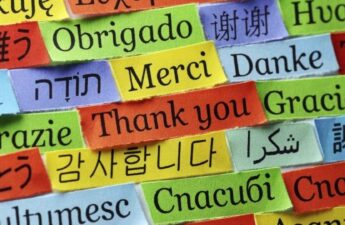Translation conferences attract a sea of professionals and beginners who are just entering the field of translation. It is a pleasure to greet those with whom you have spoken before, to see new faces, to listen to the speeches of experienced translators who want to share their discoveries.
How do some colleagues prepare for an interpreter conference? Usually, long before the event, they anticipate all the charm of acquaintances and new experiences, and then, on the last or penultimate day, they receive an order, and they, not counting themselves have the right to refuse, sit well after midnight or even take work with them to the conference. This, undoubtedly, distracts, does not allow getting everything that would be useful to learn from what is happening. After all, it is so important to get into the process and closely follow the speaker’s thoughts, instead of constantly checking mail (or, even worse, translating).
Many experts share their feelings about the fact that, returning from the “gathering”, again and again feel the strange blues inherent in the time after the conference. After a day or two, they are back in the ranks and again load themselves with sheaves of translations. The recharge that is received at such events for professionals disappears somewhere and turns into a pleasant memory.
However, one of the biggest difficulties (of course, besides how to deal with that blues) is the question of how to best apply what they learned and understood at the conference, how to use all the harvested advice correctly. Here are some recommendations for you.
1. Take time to reflect.
The drive back from the conference is usually a great opportunity to sit and think over the past few days. You suddenly find yourself alone, you are no longer surrounded by colleagues, all the noise around you has disappeared, so use this time to think about how it went, what you learned, how it will change you and your approach to work.
2. Write down your thoughts.
Sometimes it helps a lot to record the stream of consciousness that arises from thinking. Sometimes, when we write something, one thought clings to another, and a valuable canvas of conclusions remains on the sheet. On paper or on a computer, it doesn’t matter. The main thing is to have time to record it as if in a personal diary, which will help to save the necessary from each event. Someone publishes their thoughts on blogs, others leave them to themselves.
3. Write down the key points.
The day after graduation or when you get home, write down what you learn, grouping information into three categories:
ideas,
strategies,
instruments.
In the “ideas” record all the vivid thoughts heard and settled in the head during the speeches. This is, so to speak, a more philosophical section, something that can be pondered over.
Strategies contain everything you have learned to manage and improve your business.
And finally, “tools” is a list of new applications, programs, websites that were discussed at the conference.
If during the event you did not take notes, then you can draw up this mini-report for yourself by looking over the conference program again. This will remind you of each performance and help you recall important moments in your memory.
4. Make a list of actions.
After a list of key points, it is always helpful to list possible actions in those directions. If a cool new tool was the key idea, you could write “Try Todoist” or “Print brochures for targeted direct mailing” (for example, as part of a marketing program). Or, if you heard from a colleague about an entertaining business expansion strategy, you can also mark that you plan this as one of your next steps. It is noteworthy that if you start a phrase with a verb, it will be easier to follow through later (that is, not just “Todoist” or “printed brochures”, because this can distract from what had to be done with them in the first place).
5. Set a time for thoughtful action.
You can, for example, set aside for this for 3 hours every day, until you complete the planned. This time will include everything: the search for people we met at the conference, and the processing and accounting of receipts for expenses, and the transformation of the list of actions … into actions themselves! If some items on the list require more information or time, you can allocate an additional period for this. The main thing is to try to do as much as possible in the next week after the event itself. It is quite understandable why!
What strategies do you use to keep your knowledge and inspiration from going down the drain?




